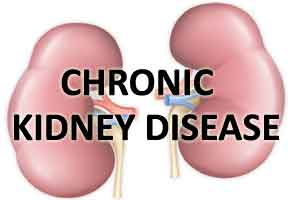- Home
- Editorial
- News
- Practice Guidelines
- Anesthesiology Guidelines
- Cancer Guidelines
- Cardiac Sciences Guidelines
- Critical Care Guidelines
- Dentistry Guidelines
- Dermatology Guidelines
- Diabetes and Endo Guidelines
- Diagnostics Guidelines
- ENT Guidelines
- Featured Practice Guidelines
- Gastroenterology Guidelines
- Geriatrics Guidelines
- Medicine Guidelines
- Nephrology Guidelines
- Neurosciences Guidelines
- Obs and Gynae Guidelines
- Ophthalmology Guidelines
- Orthopaedics Guidelines
- Paediatrics Guidelines
- Psychiatry Guidelines
- Pulmonology Guidelines
- Radiology Guidelines
- Surgery Guidelines
- Urology Guidelines
Healthy Plant-based diet may lower Kidney Disease risk

A plant-based diet including a diet high in fruits, vegetables, whole grains, and nuts could reduce could lower a person's risk of developing chronic kidney disease (CKD) and slow the decline of kidney function. The new study uncovered a link between plant-based diets and kidney health indicating that consuming a diet based on nutrient-rich plants may help protect against the development of chronic kidney disease (CKD). The findings include-
- In middle-aged adults, following a healthy plant-based diet was linked with a lower risk of developing chronic kidney disease.
- Following an overall plant-based diet or a healthy plant-based diet was linked with experiencing a slower decline in kidney function.
A new study has been published in the Journal Clinical Journal of American Society of Nephrology(CJASN).
The consumption of plant-based diets is becoming more common for ethical, environmental, and health reasons. The quality of plant sources of food can differ, however, with nutrient-rich plants being more healthful and plants that are high in refined carbohydrates being less healthful.
Emerging evidence suggests that the risk of chronic conditions varies by types of plant-based diets. To evaluate the associations between plant-based diets and the development of CKD in a general population, a team led by Hyunju Kim and Casey M. Rebholz, PhD (Johns Hopkins Bloomberg School of Public Health) analyzed information on 14,686 middle-aged adults enrolled in the Atherosclerosis Risk in Communities study.
Among the major findings:
- During a median follow-up of 24 years, 4,343 new cases of CKD occurred.
- Participants with the highest adherence to a healthy plant-based diet had a 14% lower risk of developing CKD than participants with the lowest adherence to a healthy plant-based diet.
- Participants with the highest adherence to a less healthy plant-based diet had an 11% higher risk of developing CKD than participants with the lowest adherence to a less healthy plant-based diet.
- The association between plant-based diets and CKD risk was especially pronounced for participants who had a normal weight at the start of the study.
- Higher adherence to an overall plant-based diet and a healthy plant-based diet was associated with slower kidney function decline.
"For kidney disease risk, it appears to be important to choose healthy options for plant sources of food, including fruits, vegetables, whole grains, nuts, and legumes," said Dr. Rebholz. "Also, our finding of a significant interaction by weight status at baseline suggests that following a healthy eating pattern may be particularly beneficial before becoming overweight or obese."
The authors concluded that higher adherence to a healthy plant-based diet or a pro-vegetarian diet was associated with lower CKD risk, whereas adherence to a less healthy plant-based diet was associated with higher risk, independent of sociodemographic factors and health behaviours.
In an accompanying Patient Voice editorial, Patrick Gee describes his dietary experiences as a person who spent 4.5 years on peritoneal dialysis and is now approximately 2 years into a kidney transplant. He found plant-based diets to be lacking in several areas and has settled on the ketogenic diet, which is very low in carbohydrates, high in fat, and moderate in protein.

Disclaimer: This site is primarily intended for healthcare professionals. Any content/information on this website does not replace the advice of medical and/or health professionals and should not be construed as medical/diagnostic advice/endorsement or prescription. Use of this site is subject to our terms of use, privacy policy, advertisement policy. © 2020 Minerva Medical Treatment Pvt Ltd